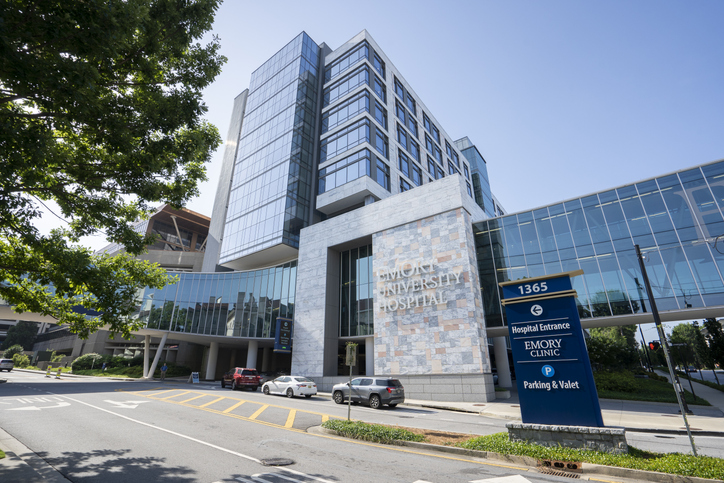
The closure of a major hospital has put significant pressure on Atlanta’s healthcare system
Outside Emory University Hospital Midtown, nestled in bustling downtown Atlanta, two makeshift mobile units stand guard by the emergency room. These units are a testament to the hospital’s struggle during rush hours, when the hallways become makeshift wards for patients on stretchers. Dr. Nataisia Terry, who oversees the emergency department, paints a vivid picture of the norm: a corridor crowded with patients, reflecting a sharp 20% spike in ER visits within just a year.
Not far from Emory, Grady Memorial Hospital faces its own crisis. With its halls too brimming to take more, ambulances are often sent on a detour to distant hospitals. The overcrowding at both Emory and Grady is no secret; they’re frequently listed as critically packed on state monitors.
This dire situation spiraled after the shutdown of Atlanta Medical Center in 2022, leaving Atlanta grappling with a growing populace and a shrinking healthcare capacity. With over 66,730 new faces in the metro area from 2022 to 2023 alone, the strain on healthcare facilities is palpable. Conversations with doctors, patients, and local leaders reveal a healthcare system on the brink, barely holding off the chaos a disaster could unleash.
Grady Memorial now stands as Atlanta’s only adult Level 1 trauma center, bearing the brunt of a surge in patients. Dr. Anwar Osborne shares tales of a once-manageable workload that’s become a relentless scramble, underscoring the gap left by Atlanta Medical Center’s closure. The community’s safety net, he fears, is fraying at the edges.
The closing of Atlanta Medical Center, an institution in the heart of Atlanta’s Old Fourth Ward, has sent ripples through the city. Managed by Wellstar Health System until its closure due to financial woes, the hospital’s absence has left a void in a community already at a disadvantage. Dr. Michelle Cooke warns of the looming health crisis, as routine check-ups and screenings fall by the wayside, predicting a steep climb in health issues.
The implications for an Atlanta medical malpractice lawyer are profound. The escalating pressures on healthcare providers could lead to a rise in medical errors as staff are stretched thinner across an increasing patient load. The complex interplay of overcrowded facilities, overstressed healthcare professionals, and the closure of critical care centers creates a fertile ground for negligence, potentially resulting in more malpractice claims. Lawyers specializing in this field may see an uptick in cases, highlighting the need for robust legal oversight and advocacy to ensure patient safety and uphold quality care standards in a strained healthcare system. As the landscape shifts, the role of medical malpractice attorneys becomes even more crucial in navigating the intricacies of healthcare delivery and accountability amidst Atlanta’s evolving healthcare crisis.
The surge in patient load and the consequent increase in healthcare delivery pressures could make it challenging to pinpoint responsibility in malpractice cases. Medical malpractice lawyers in Atlanta may need to navigate an increasingly complex maze of legal, medical, and ethical considerations. The task involves not just advocating for the rights of patients but also understanding the constraints and challenges healthcare providers are under.
Moreover, the aftermath of healthcare facility closures demands a nuanced understanding of the broader social and economic forces at play. Lawyers specializing in medical malpractice must consider how these systemic issues affect patient care standards and outcomes. They’re tasked with not just representing individuals but also addressing larger questions of equity and access in healthcare. This environment might also inspire legal professionals to advocate for policy changes aimed at preventing such healthcare crises from recurring, thereby safeguarding both patient safety and the integrity of the medical profession.
In essence, the evolving healthcare landscape in Atlanta, marked by facility closures and an overwhelmed system, could redefine the role of medical malpractice lawyers. These professionals are increasingly crucial in ensuring justice for affected patients while contributing to a broader conversation on improving healthcare access and quality in a rapidly changing city.


